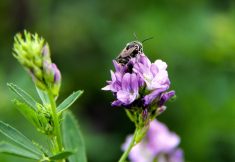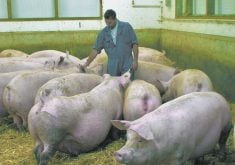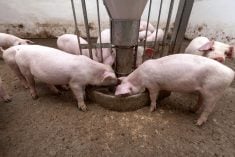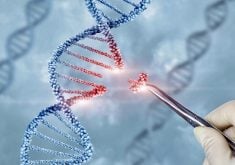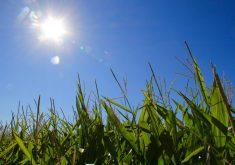In the fight against aflatoxin, dairy producers often turn to sequestering agents such as clay to reduce transference of the toxin into milk. It’s an effective tactic, but a new study from the University of Illinois shows that clay has additional benefits for overall cow health.
“There has been a good amount of research showing the effect of clay supplements on milk quality and performance, but we took it a step further to look at how clay can help the cow’s immune system,” explains Russell Pate, doctoral student in the Department of Animal Sciences at University of Illinois and lead author on the study.
Read Also

Canada seventh-most influential country on agri-food
Report from Dalhousie University and MNP shows Canada ranks seventh among G20 countries on agri-food influence.
When incorporated into the diet, clay binds to aflatoxin, preventing it from being absorbed into the cow’s bloodstream. Instead, Pate says, the bound clay-aflatoxin complex is simply excreted through the feces.
In the study, Pate and his collaborators looked at the effects of aflatoxin and aluminosilicate clay supplementation in four groups of lactating Holstein cows: cows that weren’t exposed to aflatoxin and were not fed clay (control); cows that were exposed through an oral bolus and were not fed clay; cows that were exposed and fed four ounces of clay in the total mixed ration; and cows that were exposed and fed eight ounces of clay.
“We used two different concentrations of the product to see if adding more would have a greater effect on toxin transference to the milk,” says Phil Cardoso, assistant professor in the department and co-author on the paper.
Cows fed the greater quantity of clay produced more milk with less aflatoxin M1, the form of the toxin that is excreted in milk.
But similar results have been shown by other researchers. What was new about the study was that Pate and Cardoso, along with co-author Devan Compart, looked at the effects of aflatoxin and clay on the liver, through biopsies, and at blood metabolites. The measures provide a broader picture of overall health and immune function.
“By minimizing the amount of aflatoxin getting into the cow’s bloodstream through the clay supplements, we wondered if that would help the cow’s immune system stay stronger, in a sense. That hadn’t been tested as much,” Pate explains.
The team also looked at gene expression and found a certain gene involved with protein production, known as MTOR, was negatively impacted by aflatoxin challenge.
Ultimately, the researchers recommend clay supplements for aflatoxin challenge in dairy cattle.
“If you add clay to the diet, you will have a decrease in aflatoxin getting to the milk and will potentially be bolstering the immune system as well,” Pate says.





